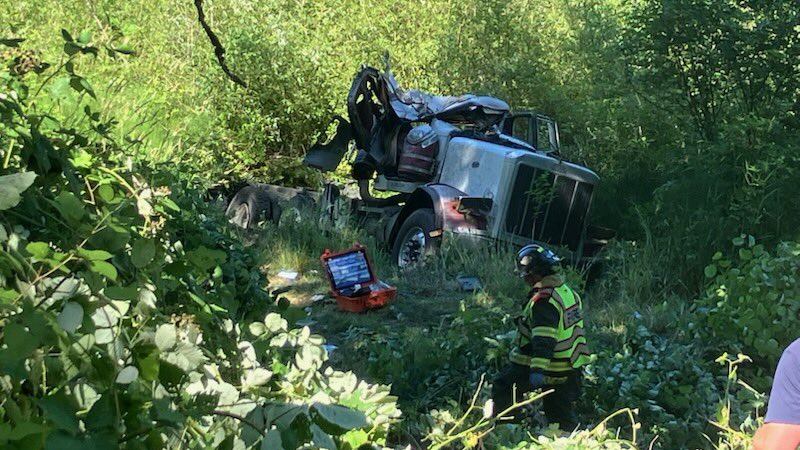SEATTLE — Next door to new upscale townhouses and well-kept century-old homes is a corner lot with a dilapidated house described by one neighbor as a "festering eyesore."
The tenant, a man who has lived in the home for more than a decade, has left piles of debris, rat infested rotting garbage, and even human waste in every room. Even if the owner hoped to rehabilitate the 106-year-old house, the damage inside, according to inspectors, is beyond repair.
"This property just never looked like it was ever taken care of," said neighbor Jeff Nelson, who noticed what appeared to be mold growing inside the windows. Since 2010, City of Seattle records indicate the property owner was forced to comply with only one code violation, after neighbors complained that overgrown trees and weeds made the sidewalk impassible.
More recently, neighbors discovered a hole in the city's enforcement policies that gave inspectors little authority to do anything about the deteriorating home.
The city's Department of Construction and Inspection -- formerly known as the Department of Planning and Development -- investigates complaints and enforces housing codes and rules. It can do little to intervene when the house is occupied and neither the landlord nor the tenant files the complaint.
"If the house is vacant, inspectors can look for violations and contact the owner," said department spokesperson Bryan Stevens.
"A notice of violation is sent to the owner allowing them a few days or weeks to respond, depending on the severity of the issue. If they don’t respond, then the owner is subject to fines in the amount of $150 a day for the first 10 days, and then $500 per day for each day after. After that, we will have the home boarded up and secured and refer the case to the City Attorney’s Office for litigation," he said.
But, Stevens admitted, if the house is occupied and both the owner and the tenant neglect the property, and neither complains to the city about it, the city's hands are tied.
"If you lived right next door to this house, your property value would go right down," said Jenny Wickstrum, who was hired to clean the biohazards from the interior before the house is demolished.
One neighbor, who asked not to be identified, said she was told the city could not do anything about the property unless the blight overflowed into the sidewalk or the street.
Nelson says he never contacted the city, but he wondered if the house and the vacant house next door -- which was owned by the same landlord -- were safety hazards. "The roof was dilapidated and the porch looked like it was going to collapse, so yeah, I've always wondered, you know, what's going on with that property?"
Stevens says neighbors should always check with the city's complaint website; http://www.seattle.gov/dpd/codesrules/makeacomplaint/ to see if inspectors can help enforce violations. He said rodent problems should be made to King County.
Neighbors told KIRO 7 they're relieved the homes will be demolished. Otherwise, the eyesore could have stood indefinitely.
KIRO







